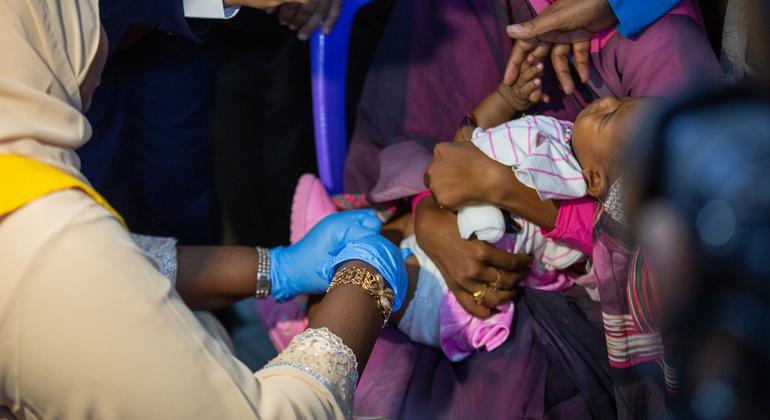Under the terms of the agreement, the price of the R21/Matrix-M vaccine will drop to $2.99 per dose within a year – a reduction expected to save up to $90 million. These savings are expected to allow countries to obtain more than 30 million additional doses over the next five years.
“Today’s announcement is a powerful example of what our Vaccine Alliance does best,” said An Vermeersch, Gavi’s head of vaccine programs and markets.
“We are leveraging innovative financing and partnerships to secure affordable vaccines that can better protect children against one of Africa’s biggest killer diseases. »
Nearly 600,000 deaths in 2023
Malaria remains one of the deadliest infectious diseases in the world. In 2023, it caused around 597,000 deaths, the vast majority among young children in Africa. Approximately every minute, a child dies from the disease.
“Such a devastating toll demands action,” said Leila Pakkala, director of UNICEF’s Supply Division.
“As international aid declines, UNICEF is determined to work with partners to provide enough vaccines at the best possible price to protect children. »
The new pricing agreement was made possible by an advance payment through the International Finance Facility for Immunization (IFFIm), which converts long-term pledges into upfront funds. This gives Gavi the ability to act quickly when major market development opportunities arise.
The ambition to act
“IFFIm exists to turn ambition into action,” said Ken Lay, Chairman of the IFFIm Board of Directors. “This agreement shows how financial innovation can unlock opportunities that save lives. »
More than 40 million doses of malaria vaccine have already been distributed through Gavi-supported programs, and 24 African countries now include malaria vaccination in their routine immunization.
Demand is high: 14 countries introduced the vaccine for the first time last year, and seven more will do so in 2025.
The lower price should help Gavi move closer to its goal of fully vaccinating 50 million more children against malaria by the end of the decade.
The two WHO-recommended malaria vaccines, R21/Matrix-M and RTS,S, have been shown to reduce malaria cases by more than half in the first year after vaccination, with additional protection following a booster dose.
For families and health systems already strained by the disease, the expanded rollout could be transformative. “It’s about giving every child a fair chance to be protected,” Lay said. “It’s about saving lives now, not years from now.” »




